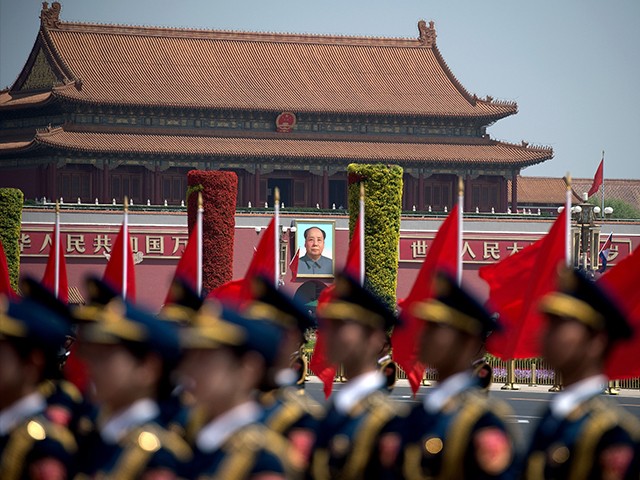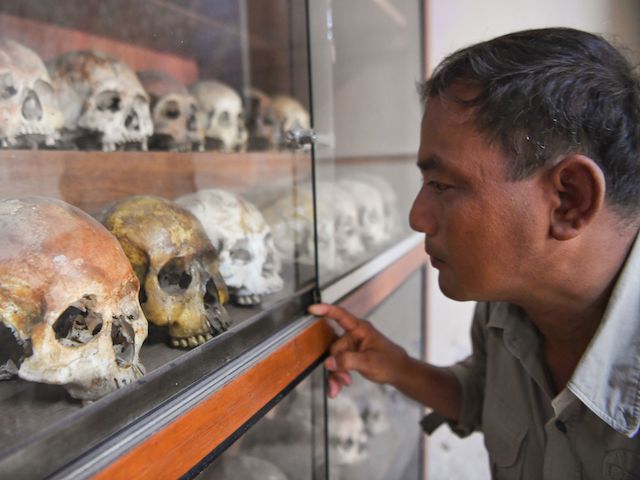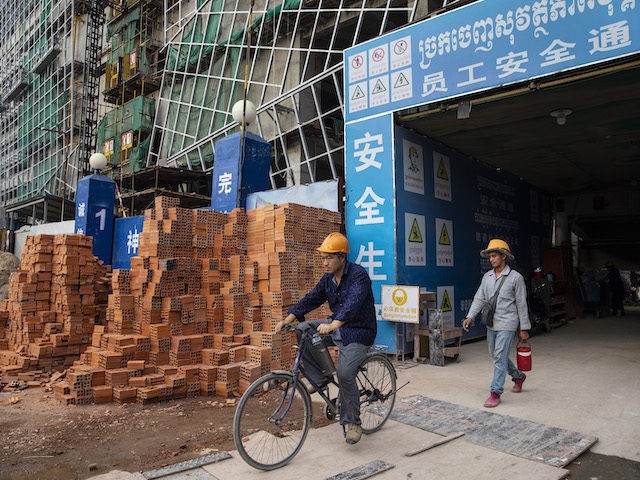The U.S. embassy in Cambodia on Wednesday complained the Cambodian government “has not been fully transparent about the intent, nature, and scope” of a project to renovate the naval base at Ream, apparently with assistance from the People’s Liberation Army (PLA) of China.
“The Cambodian people deserve to know more about the project at Ream and to have a say in this type of military agreement, which has long-term implications for their country,” U.S. Embassy spokesman Chad Rodemeier said after satellite images revealed three new buildings under construction at Ream.
The images were published by the Asia Maritime Transparency Initiative of the Center for Strategic and International Studies (CSIS), which had no doubt that the new buildings and road constructed at Ream “are being built to facilitate a Chinese military presence in Cambodia.”
CSIS cited a Wall Street Journal (WSJ) report from July 2019 that revealed Cambodia secretly signed a deal with China to let the PLA use part of the naval installation at Ream, which is Cambodia’s biggest naval facility, and is located near a major airport built by a Chinese corporation.

The portrait of late communist leader Mao Zedong is seen behind a Chinese military honor guard as they wait for the start of a welcome ceremony for Cambodia’s Prime Minister Hun Sen outside the Great Hall of the People in Beijing on May 16, 2017. (Nicholas Asfouri/AFP/Getty Images)
The secret deal gave China access to the Ream base for 30 years, with automatic 10 year renewals afterward. China was given permission to station military personnel at the base, dock PLA warships there, and store weapons on site.
One provision of the deal stipulated that Cambodians would need Chinese permission to enter the portions of the base given to the PLA. CSIS noted that when U.S. officials requested permission to visit the base in June 2021, they were denied access to several areas.
Cambodian officials have acknowledged receiving assistance and funding from China to renovate Ream, but they claim the base will not be handed over to the PLA.
“Our port is open to all when the construction is finished. If there are other friends who want to help constructing we allow, and when the construction is finished, we welcome all countries to use it,” Cambodian government spokesman Phay Siphan said on Wednesday.
Relations between the U.S. and Cambodia are strained because the U.S. is much more critical of Cambodia’s human rights record than strategically vital Vietnam or Thailand.

Norng Chan Phal, who survived internment at the Tuol Sleng prison known as S-21 as a child, looks at skulls displayed at the Tuol Sleng genocide museum in Phnom Penh on September 2, 2020. (Tang Chhin Sothy/AFP via Getty Images)
Eurasia Group associate Charles Dunst told Business Insider on Thursday that Cambodian’s authoritarian Prime Minister Hun Sen “resents being treated differently than his neighbors” and welcomes support from Beijing without moral strings attached.
In fact, Cambodian Defense Minister Tea Banh literally praised China for offering infrastructure assistance with “no strings attached” when U.S. Deputy Secretary of State Wendy Sherman raised “serious concerns” about Chinese involvement with Ream during her visit in June.
“Cambodia, once singled out as a strategically unimportant country that Washington could target with a values-based foreign policy, has become strategically important once again,” Dunst observed.

COMMENTS
Please let us know if you're having issues with commenting.